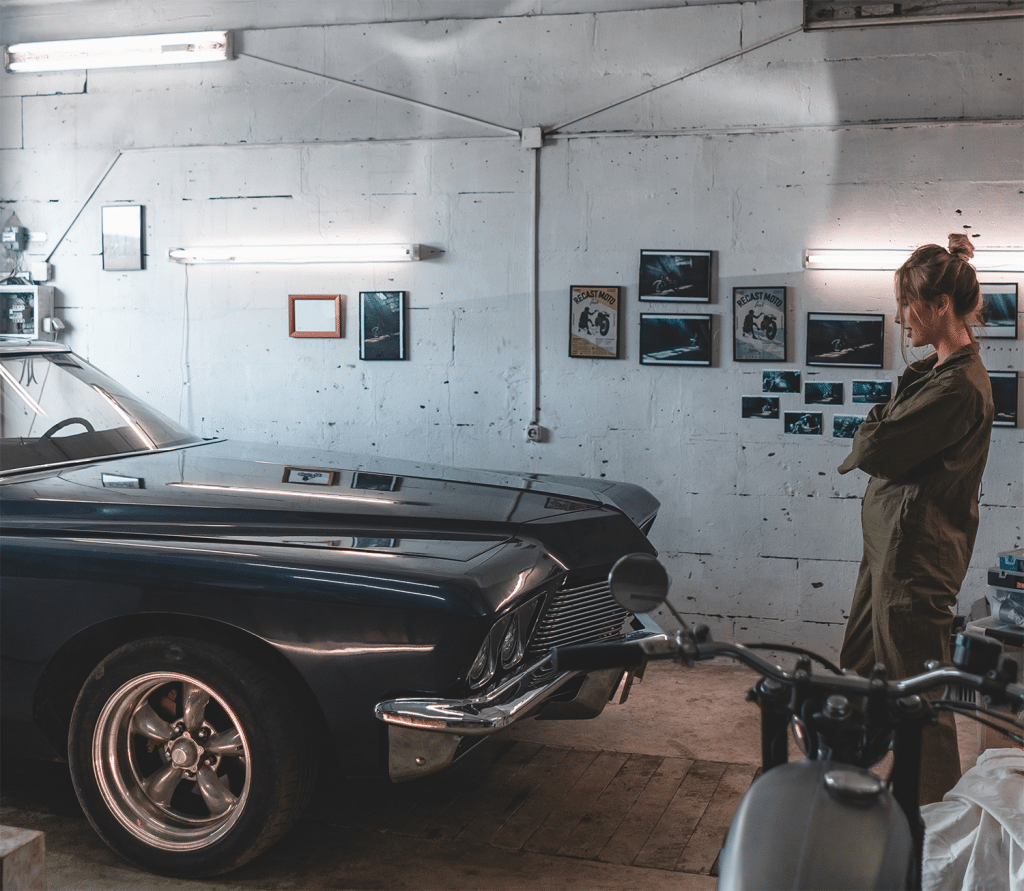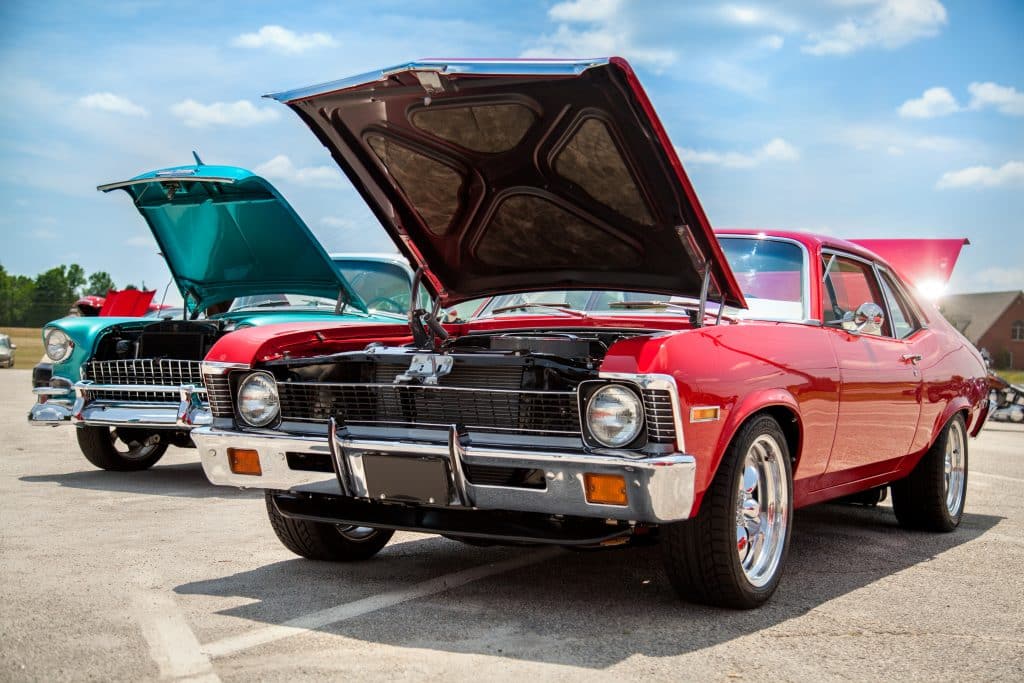
Here at Shift Brokers we talk a lot about enthusiast insurance, or more wordy – insurance for car enthusiasts. For those who are not familiar, one of the immediate questions we get is how is that different than my traditional insurance, or even classic car insurance? In this blog post we’re going to dive into the business side of insurance just a little bit because it will help us quantify what makes enthusiast insurance different. Most importantly, why it makes business sense for insurance companies to offer policies that could translate into you getting better coverage, lower premiums, or in a lot of cases, both.
What Is Enthusiast Insurance?
First, let’s talk about what enthusiast insurance is and why it matters for car people. While not a specific type of policy, enthusiast insurance is a form of car insurance, but it is underwritten by companies that actively seek business from car enthusiasts. This insurance is based on a few underlying principles, which we discuss, though they may vary slightly depending on the situation and the company.
The benefit of these differences? Often lower rates, better coverage or both.
Insurance: The Business Of Risk
Before we get into the list, we want to take a moment and explain WHY insurance companies want this business. In a few cases, like Hagerty, the founders were car enthusiasts. The reality that like all businesses, they are here for a purpose of making a profit. And every insurance company does that by evaluating and predicting risk. We talk about it in every article. At the end of the day, insurance companies are betting on their ability to predict how likely you are to make a claim. As a simple scenario, this is why people with lots of accidents and tickets tend to pay more for insurance than someone with a clean driving record.
So why should you care about the risk insurance companies take? Because when your situation matches their risk tolerance, it may be an opportunity to find better alignment for your insurance needs. While some insurance companies might consider things car enthusiasts do higher risk, there are a number of scenarios where car people may actually are actually lower risk than everyday drivers.
With that, let’s dive in.
Enthusiasts Love Their Cars

While this may seem touchy feely and abstract, the simple reality is if you care for you car it reduces risk. How? Little things from giving your favorite car a spot in the garage, to parking further away from cars to avoid getting hit. Even the way you drive your car can help reduce risk when you are actively seeking to avoid any damage to your car.
These all may seem small, but these little things add up to potentially making it less likely you file a claim. While you may not do any of these things because it benefits your insurance company, some smart insurance companies have figured out that people who love their cars are not as likely to file claims.
Enthusiasts Don’t Generally Drive Their Cars Daily
Just like how you park or store your car reduces risk, many enthusiasts don’t drive their cars daily or commute in them. We know many people do daily drive their enthusiast vehicle and unfortunately this remains a gap in this business. But for people who can park their car during the more mundane parts of life, their “fun” car is a weekend car. It goes to shows, track days or on mountain cruises. That’s an attractive risk proposition for specialty car insurers.
For insurance companies, most accidents occur during regular uses in crowded places. Since enthusiasts are less likely to use their vehicles for these purposes, they evaluate it as potentially less risky. Some enthusiast companies go so far as to require you DON’T do these types of activities, even if it’s not your daily driver. Others are fine with you occasionally using the car for commuting or errands.
Enthusiasts May Have Outlets For High Performance Driving

While not every company shares this opinion, some very popular ones do. They understand that people who love their car and use safe, controlled and healthy outlets like track days don’t necessarily present an unacceptable level of additional risk.
We should note, that even enthusiast companies that are friendly to tracking and high performance driving events generally require separate policies for on track activities.
Valuation
Enthusiast insurance often focuses on valuation. They do this for a number of reasons. First, specialty cars often appreciate instead of depreciate. The other is through modification or restoration, the cars value could be significantly different than just a typical car of the same age and mileage. Traditional insurance companies often don’t determine value for your car taking these factors into account, and in some cases may even explicitly exclude the value of things like modifications.
The term for these differences in valuation is agreed value vs actual cash value. While deep diving into these terms if beyond the scope of this article, the blog post linked explains the difference and why it matters.
While not directly tied to risk, going back to enthusiasts loving their cars, generally speaking if your car is high value you want to protect it. If you protect it, you are less risky.
Other Things That Makes Enthusiast Coverage Unique

In addition to those major items above, here are some additional things that make enthusiast coverage unique.
Storage Requirements
Since the assumption is enthusiasts give preference to the safest storage as a way to reduce risk, if you don’t have a garage or otherwise store it in a location companies will consider it higher risk and you may pay a higher premium than those who store their cars in a garage. In some instances it may even be a required for coverage. This is particularly true of higher value vehicles like exotics and modern, high performance cars.
Underwriting Requirements
Most enthusiast car insurance companies require documentation on the storage, how the value was determined and even what your daily driver is. Each of these speaks directly to the risk evaluation. Most enthusiast companies are going to be more picky about who they take. While this trade off makes it a little more work to get this kind of insurance, the benefit is the potential for better coverage, saving money or both is worth the effort.
Non-Typical Enthusiast Vehicles
Enthusiast insurance also focuses on non-typical vehicles, like insurance for Exocets that are street driven, or JDM and other imported vehicles.
Enthusiast Insurance vs. Traditional Car Insurance
Now that we’ve defined what enthusiast insurance is, and why insurance companies want that business, let’s discuss a little bit about how traditional insurance insurance is different. There are even some situations where what you do as an enthusiast could be seen as additional risk to many insurance carriers.
There are a number of cases where traditional car insurance is the best fit, even if you have an enthusiasts car.
Daily Use Rating

Even if you tell your traditional insurance company your car is for pleasure, their underlying risk models and business is based on the idea that you will use your car regularly. For commuting, errands and other typical uses. So even when they “rate it” for pleasure use, they are only taking a little bit of risk off of their models that say you’ll use it every day.
Enthusiast coverage does the opposite, they assume you won’t use it much at all for these purposes. While many allow all kinds of typical uses, even occasional errands and commuting in some cases, they are rating up from the idea you don’t use it for these purposes. The difference in premium can be substantial, even if the difference seems minor.
If you daily drive your vehicle or want to use it to commute regularly, like several times a week, then traditional insurance may be more likely the right fit for you.
Modifications
Typically standard personal car insurance policies will only cover up to $500 in permanently installed modifications. In fact, depending on the nature of the modification, many insurance companies consider you higher risk. Instead of seeing modifications as sign of loving your car, they see potentially higher costs and risks. Some traditional insurance companies once they learn about modifications, may even be able to cancel or non-renew you.
These modification limitations extend not just to high performance mods, but restomods and other show car modifications which can impact risk.
Track and High Performance Driving
Just like modifications, traditional insurance companies may not consider going to the track as you expressing your hobby in a safe and controlled manner. They often see it as you engaging in a high risk activity, which they fear could translate to carrying out that activity on the street. Even some enthusiast companies don’t want track and high performance cars. But there are others that actively seek and encourage those enthusiasts.
Most traditional insurance companies consider regular track use a risky activity. And unfortunately, they have been known to cancel or non-renew policies where they feel it has changed your risk profile. This leads a lot of enthusiasts relying on “don’t ask, don’t tell” or worse, outright lying to their insurance companies.
Given there are companies who actively seek these types of enthusiasts, we find it’s better to go with a company that aligns to how you use your car.
Cash Value In Event Of A Loss
While we touched on this above, one huge difference is the way the car is valued. Most traditional insurance companies use a method called actual cash value. Generally speaking, they hire a third party company that compares the sales price of your car to others of the same age and year based on available data.
Of course, there are a few issues for enthusiasts with this approach. As we noted above, any coverage for modifications is often limited, if included at all. Also, insurance companies rarely adjust the value back up as cars become more rare or desirable. If you have a highly unique car, they may not even be able to value it correctly, often grouping it with similar but less unique trim lines.
Enthusiast car insurance generally uses a method called Agreed Value. With enthusiast insurance, not only do they use several databases of collector centric valuations, but you get the opportunity to have a say by declaring your expected value up front.
During the underwriting process, enthusiast insurance company will review the value requested. They will also usually consider modification lists and other reliable sources to establish a valuation specific to your vehicle. They will generally either agree, ask for additional details or propose a different amount. The value can include not just the rarity or real replacement value of the vehicle itself, but include modifications – restoration, performance, wheels, paint. Show or go.
If you keep your enthusiast vehicle on traditional insurance you may have a valuation gap. While you can often get an appraisal, or hire an attorney, and fight the valuation difference, this process can be costly and time consuming. Any valuation gap can result in disappointment when you don’t get the size check you need to truly replace what was lost or payments for diminished value.
Customer Alignment Factor
Most businesses focus on attracting the business that is efficient and ideal to them. It allows them to provide the best service to ideal customers they know are likely to be profitable. While your traditional insurance company will gladly take your Porsche, Bentley or other enthusiast vehicle, they often don’t seek this kind of business. It’s often assumed that this is entirely based on the higher risk or more expensive replacement parts, and that is certainly part of the equation. It’s also because at the end of the day it’s not as easy for them to provide the kind of service that fits their core business.
For example, most traditional insurance companies want to make the claims process as efficient as possible. You come to their claims adjuster, they establish their own estimate for what the damage will take to be repaired. They even have approved body shops that meet their standards and integrate into their processes. It makes the process fast, efficient and hopefully, easy for all parties involved. It’s so detailed they often have already determined the effort and cost, down to the parts for your repair, before you ever step foot in a body shop.
Where the lack of alignment comes in is when you have a modified or a specialty car. These situations often call for a more one off approach. They don’t get claims often enough to be able to streamline the process and the parts may be so unique they aren’t in their database at all. For them the process is neither fast nor efficient.
In these situations, enthusiast companies actually actively seek this kind of business – allowing choice of repair shops, rare part finding services and more. The difference between the two options is enthusiast insurance companies specialize in these situations, where traditionally insurance companies are often setup for speed and repeatability.
Enthusiast Insurance vs. Classic Car Insurance

There a lot of classic insurance companies out there and they offer a number of the same benefits as enthusiast insurance, so what’s the difference? Turns out, there is a pretty big difference between enthusiast insurance and classic car insurance.
So while the difference may not be substantial for a classic car, once you get into show cars, JDM imports, modified cars or track cars, the difference can be substantial. Most traditional classic car companies don’t want non-classic cars. As soon as you introduce modifications, newer vehicles or track activities, you may be seen as higher risk or unaligned.
This is also often the case when dealing with classic car insurance sold through traditional insurance companies. Even if the underlying classic car company would take your business directly, your traditional insurance company may be uncomfortable with the perceived risk.
Conclusion

Enthusiast insurance is a broad term that will be treated different for each situation, but all under the ideas of: valuation, lower risk to the insurance company and non-traditional cars – either through modification, unique situation like an imported car, an exotic or other newer collectible or modern classic car.
More and more companies, even those who traditionally didn’t appeal to enthusiasts, are finding out what we, as car enthusiasts have always known. We love our cars, and we’re going to protect them regardless of our insurance coverage. It’s great to know that insurance companies are finally recognizing this, offering the opportunity for better coverage, and offering competitive rates based on that potentially reduced risk.
Shift Brokers Can Help You Navigate
Shift Brokers is insurance for car enthusiasts. We can help you understand the how different carriers will value your specialty car. In addition, we can help you select from insurance companies that will get you the kind of service and coverage you need. And because we are car enthusiasts and specialize in policies for car enthusiasts, we can help you navigate the unique needs and situations only car enthusiasts find themselves in. The best part is, because we are brokers, we represent you, not the insurance companies. There is never any obligation to work with us.
Contact Me About My Insurance Needs Or Questions
Informational Purposes Only
As with all of our blog posts with tips and suggestions about car insurance for enthusiasts, these are intended as general information. The specifics of your policy, state and carrier may differ. The information in this blog post is not intended to be formal insurance advice. However, if you’d like to talk to a licensed agent about your specific needs or questions, get a quote. Always read your policy carefully.


